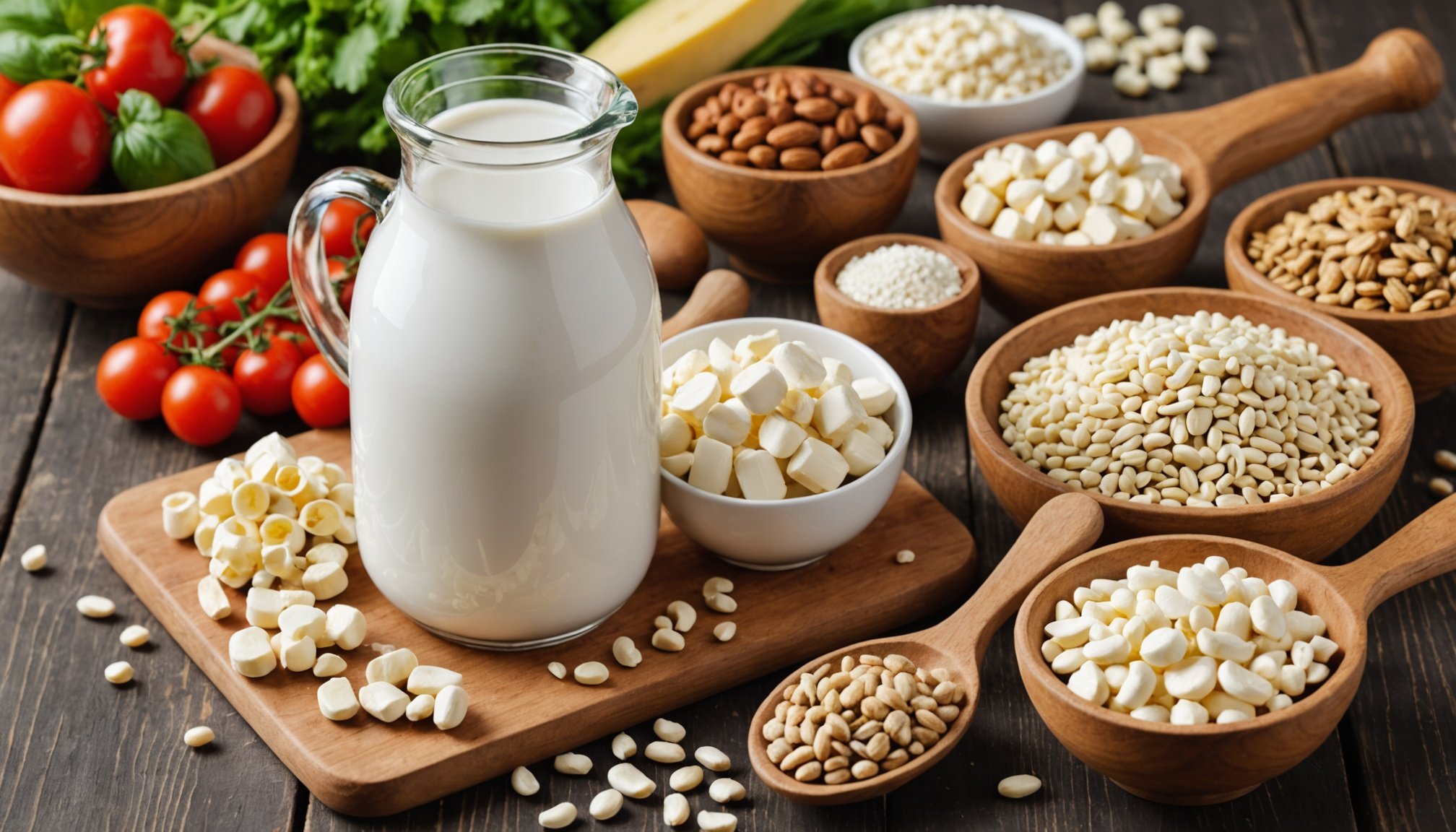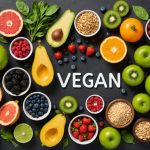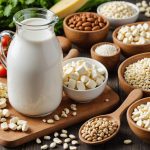Overview of Bone Health in Menopausal Women
Menopause marks a significant period in a woman’s life, influencing various health aspects, notably bone density. As estrogen levels decline, women face increased risks of osteoporosis, with bones becoming less dense and more fragile. Statistics show that a considerable percentage of menopausal women experience bone density loss, heightening their fracture risk. Hence, sustaining bone health becomes crucial during this phase.
The significance of calcium intake for bone health cannot be overstated. This mineral is vital in maintaining and potentially improving bone density. During menopause, ensuring adequate calcium intake becomes even more essential to counterbalance the natural decline in bone mass. It’s notable that calcium is most effective in maintaining bone density when part of a balanced diet incorporating other supportive nutrients such as vitamin D.
Additional reading : Essential nutrients to power your vegan diet: energize your active lifestyle naturally
Understanding the interplay between menopause and bone health empowers women to make informed dietary and lifestyle decisions. Adopting proactive strategies can considerably reduce osteoporosis prevalence and fracture risks. Such strategies often include diversified sources of calcium beyond dairy, enriching the diet with a variety of calcium-rich foods.
Essential Non-Dairy Calcium-Rich Foods
During menopause, selecting the right calcium-rich foods is essential for maintaining bone health. While dairy products are well-known sources, various non-dairy options also provide considerable benefits. By incorporating a diverse range of non-dairy calcium sources into meals, women can meet their daily nutritional needs with ease and variety.
Also to see : Achieve a perfect makeup look with just five must-have products!
Leafy Greens
Leafy greens, such as kale and collard greens, are excellent non-dairy sources of calcium. Rich in vitamins and minerals, these greens support overall health while supplying significant calcium levels. They can enhance bone health for menopausal women without relying solely on dairy.
Fortified Plant-Based Milks
Fortified plant-based milks, like almond or soy milk, are increasingly popular for their nutritional content. Fortified options provide a substantial calcium boost, suitable for those seeking dairy alternatives. They can be easily integrated into everyday meals, aiding bone health.
Nuts and Seeds
Nuts and seeds, such as almonds and chia seeds, are packed with calcium alongside healthy fats and proteins. Including these in the diet offers a tasty and nutritious way to bolster bone health. Regular consumption can help mitigate bone density loss linked with menopause.
By diversifying calcium sources, menopausal women can nurture robust bones and overall wellbeing.
Benefits of Non-Dairy Calcium-Rich Foods for Bone Health
Non-dairy calcium sources play a crucial role in promoting bone health improvement during menopause. These benefits arise due to their ability to support calcium absorption and utilisation, essential for maintaining bone density. For instance, many non-dairy foods are rich in magnesium and vitamin K, which work synergistically with calcium to strengthen bones.
When comparing non-dairy and dairy calcium sources, both offer benefits, but non-dairy options often come with additional nutrients that are advantageous for overall health. Leafy greens, like kale, not only provide calcium but also offer fibre, antioxidants, and vitamins, enhancing their nutritional value. Moreover, fortified plant-based milks are designed to replicate the calcium content found in dairy without lactose concerns, making them accessible to a wider audience.
Incorporating a variety of non-dairy calcium-rich foods ensures an enriched diet. Almonds and chia seeds, for example, are excellent choices as they contribute healthy fats and proteins along with calcium. By diversifying calcium sources, menopausal women can effectively bolster bone health, potentially reducing the risk of osteoporosis and maintaining well-being.
Dietary Tips for Incorporating Non-Dairy Calcium Sources
Incorporating non-dairy calcium sources into everyday meals can be both creative and fulfilling. Adopting effective meal planning strategies ensures that calcium needs are met consistently. Here are some tips for enhancing your dietary calcium intake:
- Embrace variety: Include a broad range of non-dairy foods like fortified plant-based milks, leafy greens, and nuts. This not only enriches your diet but also ensures diverse nutrient absorption.
- Think creatively: Blend kale or spinach into smoothies or soups to effortlessly boost your calcium intake. Almonds and chia seeds can be delightful additions to salads or yogurt alternatives.
- Combine with other nutrients: Pair calcium-rich foods with those containing vitamin D and magnesium to optimise absorption. Sprinkling sesame seeds on salads provides calcium while a squeeze of lemon juice can aid absorption due to vitamin C.
It’s important to remember that balance is key. While focusing on calcium, don’t overlook other essential nutrients that complement calcium absorption. Employing these strategies can aid menopausal women in improving their bone health through a thoughtfully crafted diet.
Recipes Featuring Non-Dairy Calcium-Rich Ingredients
Preparing delicious, calcium-rich meals can be easier than you think. Incorporating diverse non-dairy ingredients ensures you enjoy both nutritional and culinary variety.
Smoothie Recipes
Start your day with a vibrant smoothie. Blend together a fortified plant-based milk, like almond milk, with a generous handful of kale or collard greens. Add a ripe banana for sweetness and a tablespoon of almond butter, enriching the beverage with essential nutrients. This drink delivers a calcium boost while also providing vitamins A and C.
Salads and Greens Dishes
Enhance your lunch or dinner with hearty salads. Toss leafy greens with tofu, a calcium-rich food, and sprinkle with chia seeds for added crunch. Dress with olive oil and lemon juice to optimise calcium absorption. This combination emphasises the importance of combining rich sources for better health impact.
Snack Ideas
Satisfy mid-day hunger with smart snacks. A handful of almonds, paired with dried figs, offers a delightful, chewy snack high in calcium. Alternatively, make energy bites using oats, peanut butter, and sesame seeds, rolled in shredded coconut. These options demonstrate creative ways to enjoy diverse, calcium-enriched snacks.
Expert Recommendations and Research Insights
Exploring recent research studies provides valuable insights into maintaining bone health in menopausal women. Experts emphasize the critical role of dietary adjustments. Studies have shown that increasing non-dairy foods can significantly improve bone density during this life stage. Nutritionists recommend including diverse non-dairy calcium sources such as leafy greens and fortified plant-based milks.
These findings align with strategies for enhancing bone strength. Incorporating foods rich in magnesium and vitamin K encourages calcium efficiency. These nutrients are abundant in several non-dairy options and support overall bone stability.
Moreover, research underscores the importance of lifestyle changes alongside dietary modifications. Maintaining an active lifestyle, including weight-bearing exercises, is beneficial. Physical activity stimulates bone formation and enhances calcium absorption, further supporting bone health.
For optimal results, experts advise balancing dietary calcium with other nutrients, emphasizing a holistic approach. By integrating dietary, lifestyle, and exercise strategies, menopausal women can significantly lower their osteoporosis and fracture risks. Empowering women with information on effective non-dairy calcium intake is crucial for sustaining bone health throughout menopause and beyond.











